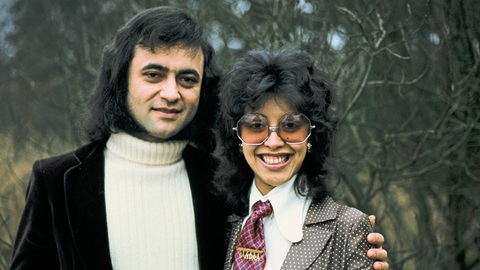Artist of the Month

Rosy & Andres
Rosy & Andres was a Dutch singing duo consisting of Rosy Pereira and Dries Holten.
From 1966 to 1975, Holten formed the duo Sandra & Andres together with Sandra Reemer. In 1975, he ended his collaboration with Reemer and formed a new duo with Pereira. Between 1975 and 1977, they had several modest hits. They also released a number of singles in Germany. At the Nationaal Songfestival 1976, they achieved fourth place with the song I Was Born to Love. Rosy and Andres split up in 1977.
In 2020, Andres passed away. That same year (2020), Rosy appeared in the final of The Voice Senior.
The song that you can hear this week is :
Save Me